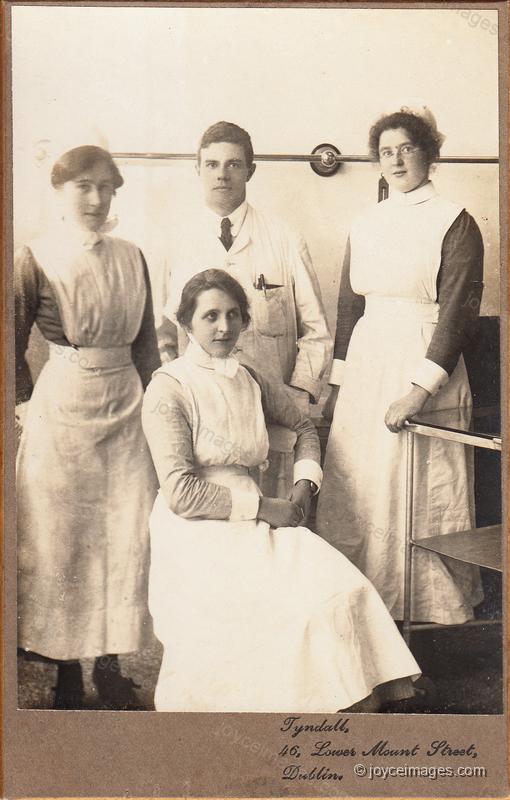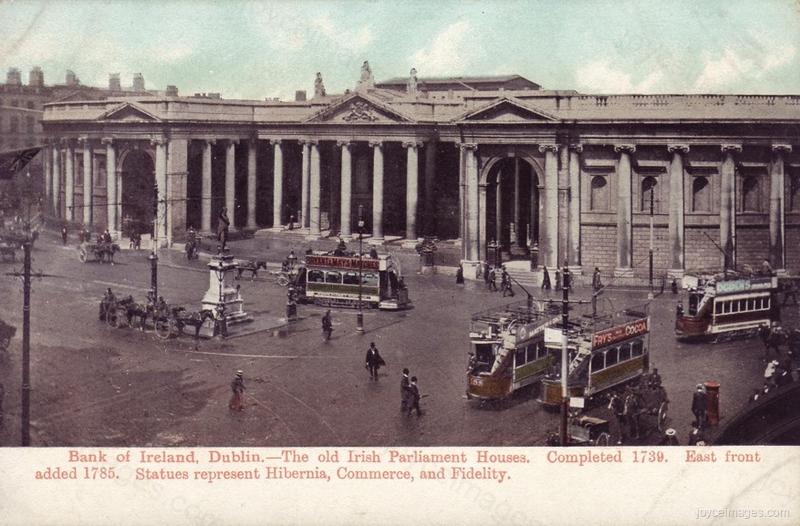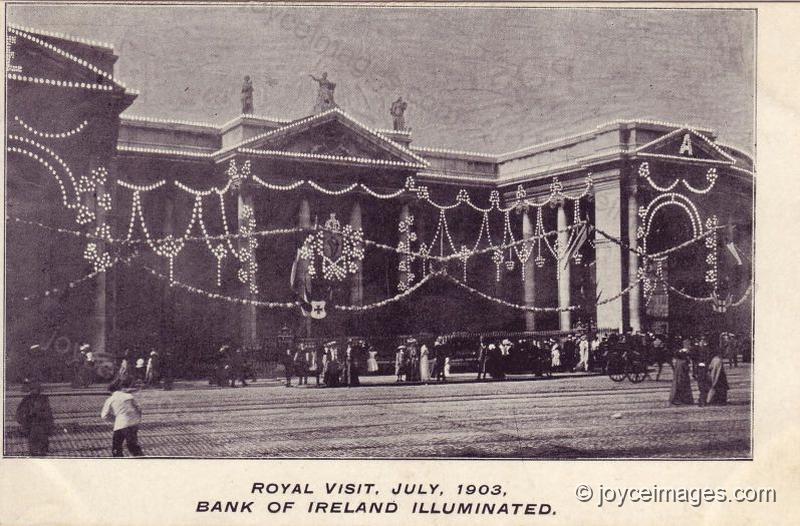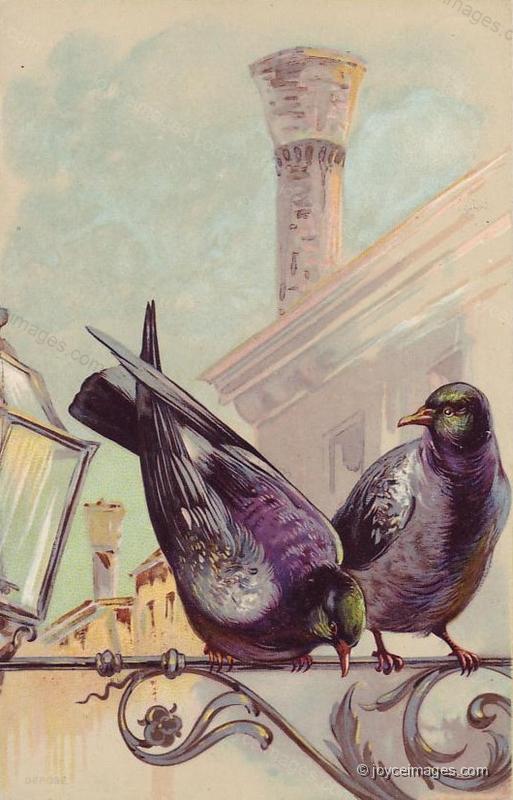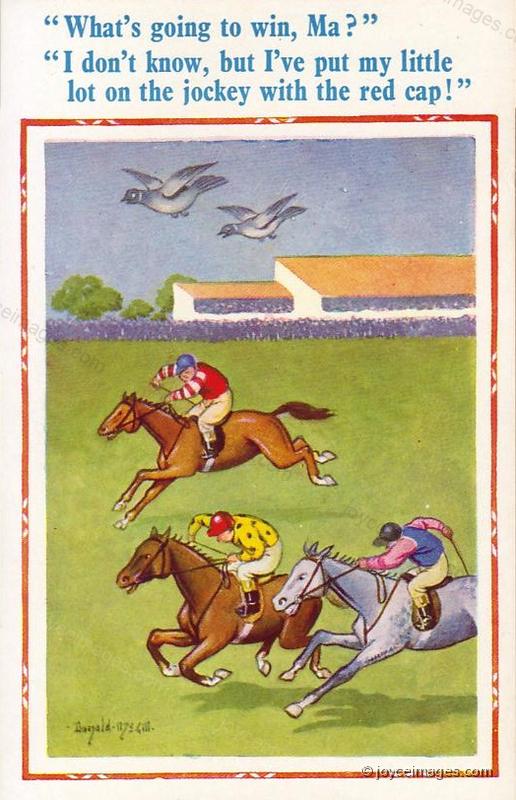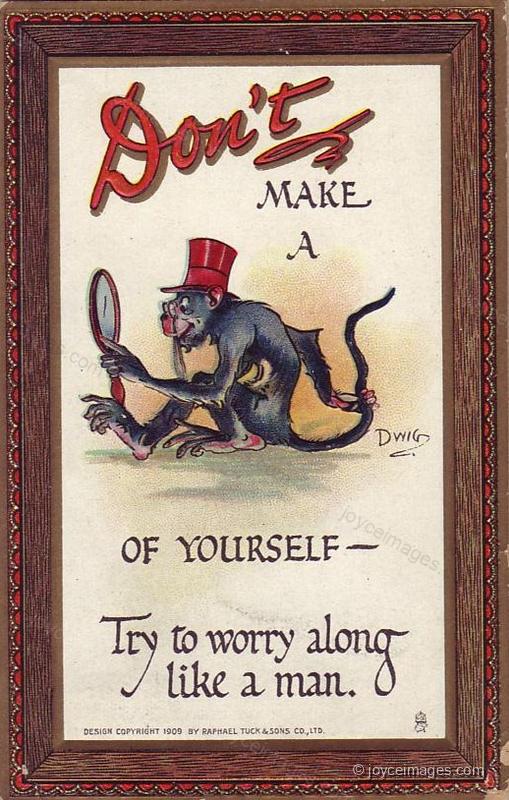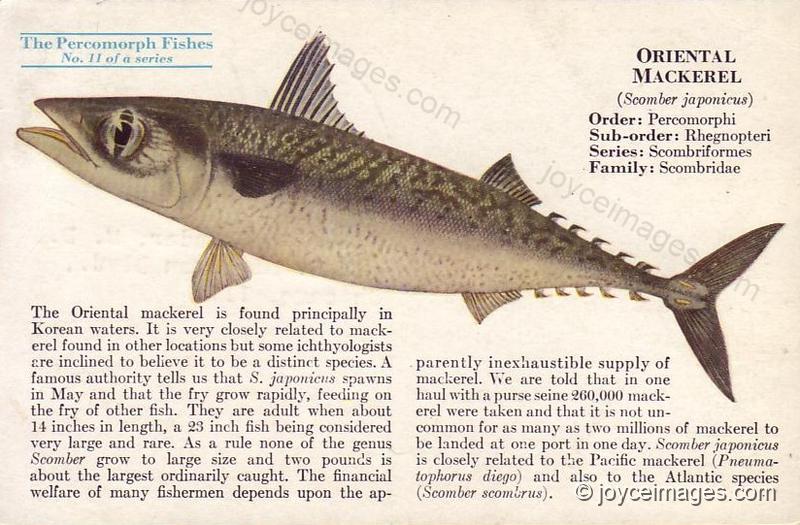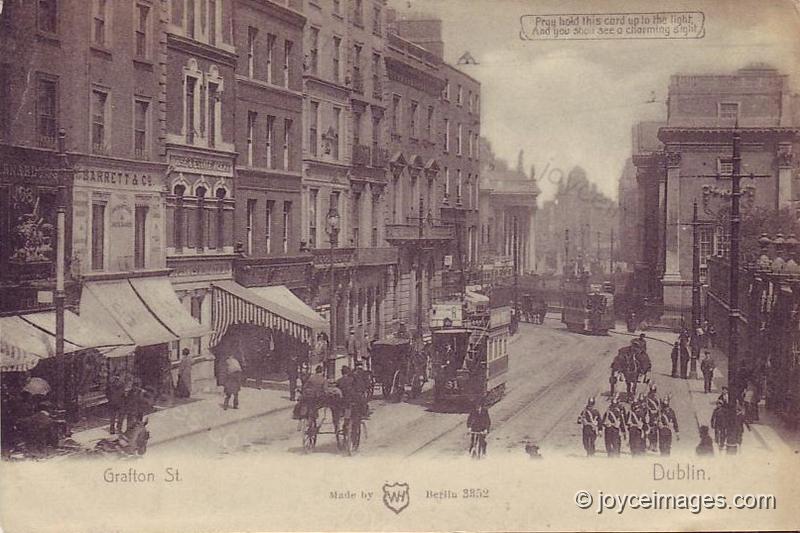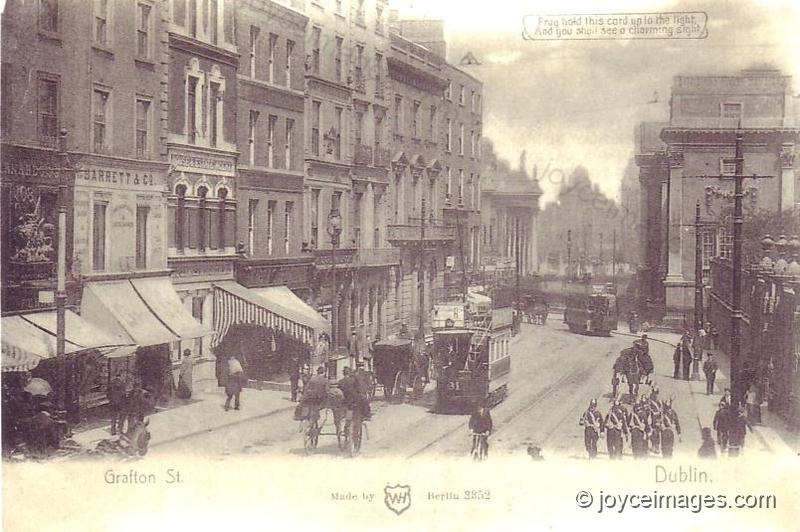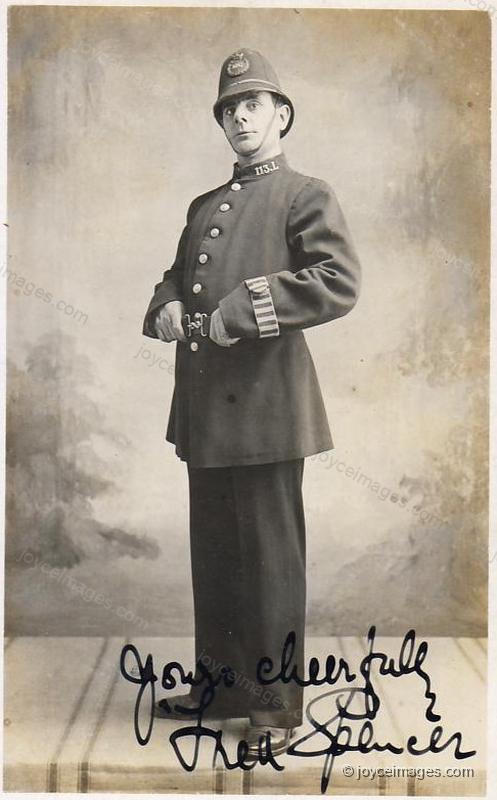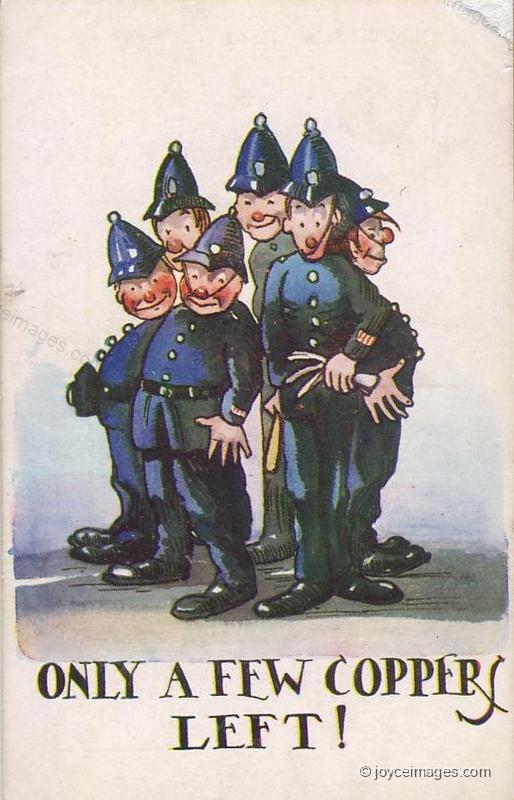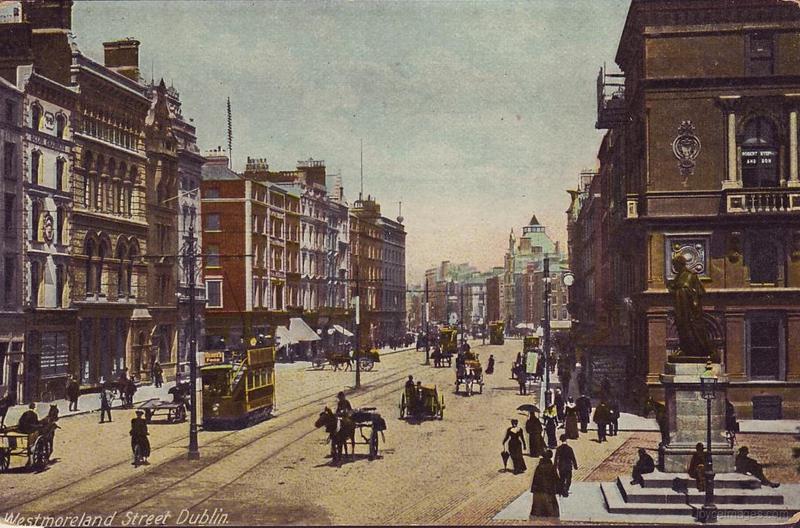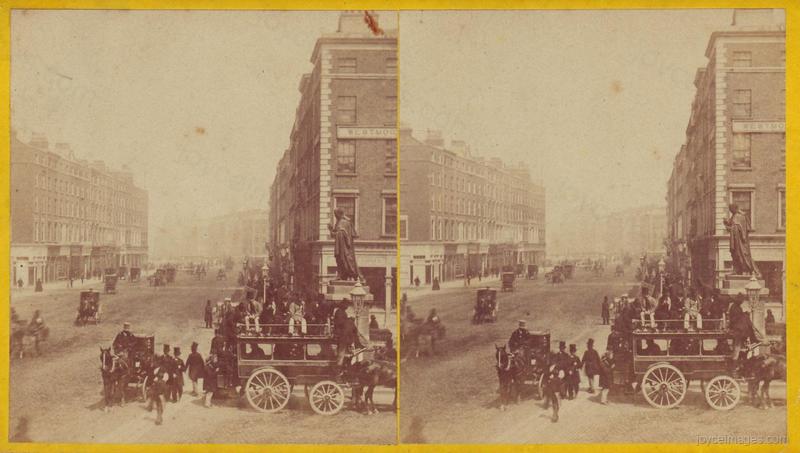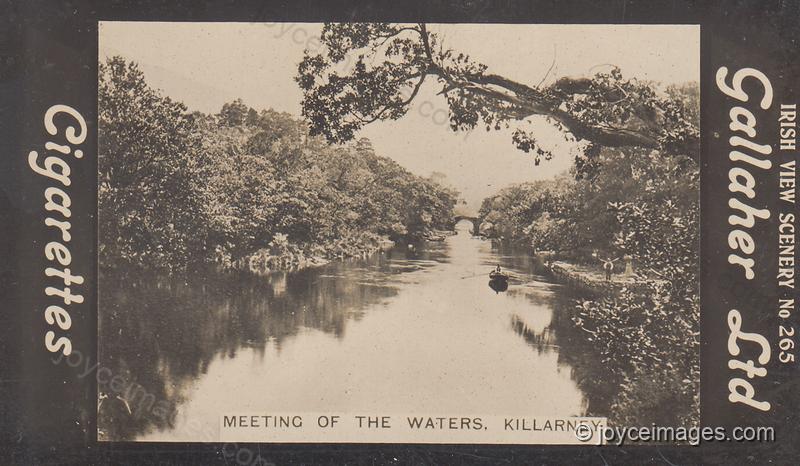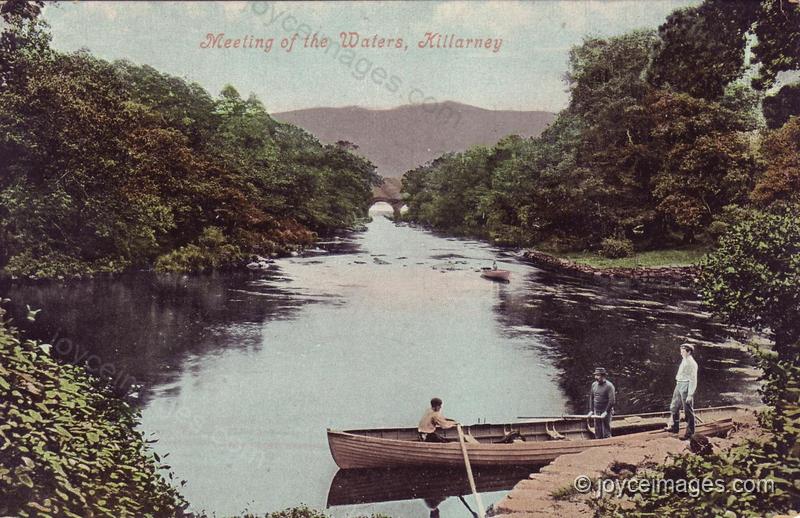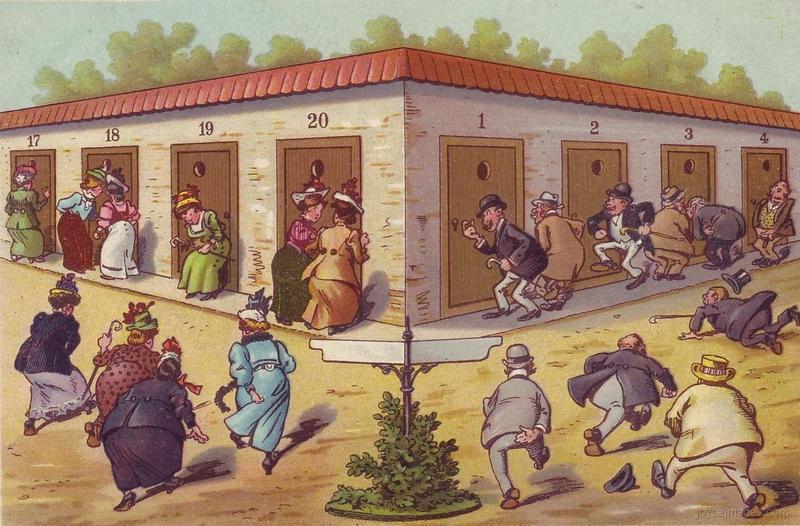"Then keep them waiting months for their fee. To attendance on your wife. No gratitude in people. Humane doctors, most of them." (U8.398)
"Before the huge high door of the Irish house of parliament a flock of pigeons flew." (U8.401)
In 1904, the Irish House(s) of Parliament had long become the Bank of Ireland. Built 1729 - 1739, it was the seat of both chambers (Lords and Commons) of the Irish parliament of the Kingdom of Ireland in the 18c. This PC reads: "Bank of Ireland, Dublin - The old Irish Parliamentary Houses. Completed 1739. East front added 1785. Statues represent Hibernia, Commerce, and Fidelity."
In 1904, the Irish House(s) of Parliament had long become the Bank of Ireland. Built 1729 - 1739, it was the seat of both chambers (Lords and Commons) of the Irish parliament of the Kingdom of Ireland in the 18c. This PC reads: "Bank of Ireland, Dublin - The old Irish Parliamentary Houses. Completed 1739. East front added 1785. Statues represent Hibernia, Commerce, and Fidelity."
In 1800, the Irish Parliament was abolished by the Act of Union whereby a 'United Kingdom of Great Britain and Ireland' was created, with its seat in Westminster. The Irish House of Parliament building was then used for various purposes, including a militant garrison and an art gallery. In 1803, the fledgling Bank of Ireland bought it from the British government for £40,000. It is seen in this PC illuminated for the Royal Visit of 1903.
" I pick the fellow in black. Here goes. Here's good luck. Must be thrilling from the air." (U8.402)
"A squad of constables debouched from College street, marching in Indian file. Goose step. Foodheated faces, sweating helmets, patting their truncheons. After their feed with a good load of fat soup under their belts."
I did not find a PC with constables, so this is one with a squad of soldiers. (U8.406)
I did not find a PC with constables, so this is one with a squad of soldiers. (U8.406)
This is a Hold To Light postcard, that shows additional detail or some color when viewed against a bright ligt.
"Policeman's lot is oft a happy one. They split up into groups and scattered, saluting, towards their beats. Let out to graze. Best moment to attack one in pudding time. A punch in his dinner." (U8.409)
POLICEMAN'S SONG
From the Gilbert & Sullivan opera "Pirates of Penzance" (1879)
(William Schwenk Gilbert / Sir Arthur Sullivan)
has for refrain:
'Ahhh
When constabulary duty's to be done, to be done
A policeman's lot is not a happy one...'
POLICEMAN'S SONG
From the Gilbert & Sullivan opera "Pirates of Penzance" (1879)
(William Schwenk Gilbert / Sir Arthur Sullivan)
has for refrain:
'Ahhh
When constabulary duty's to be done, to be done
A policeman's lot is not a happy one...'
"A squad of others, marching irregularly, rounded Trinity railings, making for the station. Bound for their troughs. Prepare to receive cavalry. Prepare to receive soup." (U8.409)
"He crossed under Tommy Moore's roguish finger." (U8.414)
From a tourist pamphlet dated 1900: "passing through Westmoreland street, we come to the eyesore of Dublin, a vile mis-shapen monstrous pewter image erected in memory of the National poet, Thomas Moore." This PC shows Westmoreland street with Tommy Moore's statue, placed over Dublin's largest public urinal.
From a tourist pamphlet dated 1900: "passing through Westmoreland street, we come to the eyesore of Dublin, a vile mis-shapen monstrous pewter image erected in memory of the National poet, Thomas Moore." This PC shows Westmoreland street with Tommy Moore's statue, placed over Dublin's largest public urinal.
The Meeting of the Waters is the confluence of the rivers Avonmore and Avonbeg to form the river Avoca, in county Wicklow. The valley of Avoca (or Ovoca) is considered one of the most beautiful landscapes in Ireland.
It was celebrated in poem and song by Thomas Moore.
It was celebrated in poem and song by Thomas Moore.
